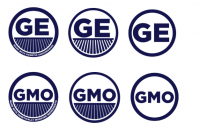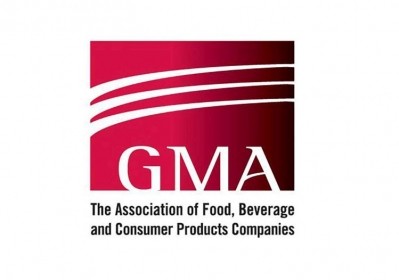‘There should be no ambiguity and no exemptions…’
First wave of stakeholders weighs in on ‘bioengineered’ labels: 'Exemptions make the useless rule even more useless...”

Unsurprisingly, perhaps, given how polarized this debate has become, the early comments (mostly from consumers and academics as industry stakeholders and other organizations are likely to submit comments closer to the July 3 deadline) reveal sharp divisions over the term ‘bioengineered,’ a word which many argue is confusing to consumers more familiar with terms such as ‘GMO.’
Many commentators also dislike the green and yellow ’BE’ logos suggested by USDA in its proposed rule, which one commentator blasted as ‘wildly misleading,’ and another claimed might be confused for the ‘bio’ organic food symbol deployed in Germany.
Commentators on both sides of the debate, meanwhile, expressed concerns about potential exemptions to the rule, which plant scientist Professor Kevin Folta argued only “make the useless rules even more useless.”
Exempting small suppliers and restaurants “is like saying that drugs only need to be tested if they come from large pharmaceutical companies and not the products coming out of small startups,” he noted.
Opponents of bioengineered crops, meanwhile, argued that failing to label highly refined sweeteners and oils from crops everyone knows are genetically engineered (soy, corn etc) if no detectable rDNA is present would make a mockery of the whole exercise.
We’ll update readers periodically ahead of the July 3 deadline for public comments, but here is a selection of those already submitted, in no particular order:
Penny Feltner: While the proposed exemptions for labels (in cases of gene-editing technology producing results comparable to selective breeding, and in cases of extensive product processing which removes any genetic material) may assuage fears of those opposed to consuming GMO ingredients for health reasons, such exemptions are inadequate to those concerned about the impacts of GMO policy and production methods on farmers, farm workers, and the natural environment. These exemptions limit my agency to make informed choices to support a certain kind of production system, and the exclusion of these products from labeling fails to account for the myriad of reasons Americans would like GMOs to bear labels- beyond the rather a-scientific concerns for personal health.
Alliance for Natural Health USA: We are in the Wild West of genetic manipulation, hacking, and experimentation, and we need laws that can keep up with these advances. If the proposed rule defines 'bioengineered' so narrowly, it will soon be obsolete and meaningless. 'Bioengineered' should be defined to capture the entire gambit of technologies that are used to tamper with the genetic make-up of our food, including gene-editing.
If the government was actually concerned with communicating information clearly to consumers, they would simply use the term "GMO" and not other terminology with which Americans may not be familiar.
Linda Ziedrich: In Europe, ‘bio’ means organic. The proposal to change the term ‘genetically modified’ or ‘genetically engineered’ to ‘bioengineered’ is deliberately misleading. Putting sunshine and smiley faces in a label for GM foods is even more deceptive.
Janet Larson: ‘May be bioengineered food,’ isn't a label, it's more obfuscation. The ordinary supermarket customer will wonder, ‘What the heck does that mean?’
Steve Lundberg: The whole thing is BS anyway. All the organic propaganda sites on social media will send their followers here with a whole bunch of random falsities and bury you in comments. [You might as well] just label everything, since 10,000 years of agricultural progress have modified every food we eat beyond ‘nature.’
Phil Harvey: There is no more reason to label GMOs or bioengineered foods than it is to label foods that have been refined and altered through other means. Hybrids have dominated our diets for generations and now even better and more productive foods are available through bioengineering. There is absolutely no need to require labels on such foods. Such labeling is misleading because it suggests that there is something odd about the bioengineering process.
Moms Across America: The currently proposed green BE symbols are too close in color and style to the European symbols for organic... The symbols or wording on the package must only read Genetic Engineering, GE, Genetically Modified, or GMO [see proposed alternatives left].
The current law would not label GMOs that are derived from GMO but are highly processed, as the GMO proteins might be broken down and not detectable. Therefore GMO sugar, corn or vegetable oils, soy oils, and derivatives, would NOT be labeled GMO. These are the primary GMO ingredients, found in sodas, candies, and most of the processed foods in America... The proposed GMO labeling law would NOT include newer GMO methods such as CRISPR/gene editing. This is unacceptable.
Elizabeth Coker: There should be no ambiguity and no exemptions. Please just make things simple. If a food was created using GMO/GE/BE techniques, or contains products that were created with GMO/GE/BE techniques, or was raised/fed using feed products that were created using GMO/GE/BE techniques it should simply be labeled as such. If nobody is exempt, then administration is easy and all food manufacturers can plan for a single expense, without confusion or legal counsel.
The ‘no visible DNA’ material criteria is ludicrous. It is typically not the DNA that necessarily could cause a health or environmental issue, it is the byproducts from the new molecular synthesis (unintended amounts of an enzyme, acid or toxin) that are the primary concern for those scientists who are concerned with the GMO/GE/BE process. It is things that cannot be tested for, since we don't know what to test for.
Kevin Folta: As a scientist and careful consumer, I do not understand why the USDA is making a scientific mandate out of a cultural misunderstanding. In many ways the decision to provide a mandatory food label for food ingredients arising from a genetically engineered plant simply reinforces misconceptions that have been propagated by the enemies of agriculture and innovation.
First, plants have been genetically altered by humans in random and ranging ways for over 10,000 years… Today’s techniques are precise, tested, and safe. The engineered plants produce products that are identical to those arising from traditionally‐bred plants…
It is indeed curious why equivalent ingredients would need to be differentiated by some sort of package decoration. Furthermore, who will test for compliance? How will tests be conducted to ensure that products not containing the label indeed are devoid of GE ingredients? How do you test sugar or oil, which contain no DNA or protein? All of this simply means that the supply chains will have to be monitored, and all of this adds cost that will be handed down to the consumer, with the intent of providing information they don’t understand and [which] protects us from nothing.
The exceptions make the useless rules even more useless. Exempting small suppliers and restaurants says that this is a meaningless policy, as if it truly was something the USDA‐AMS needs to regulate, then it must be done to all food. It is like saying that drugs only need to be tested if they come from large pharmaceutical companies and not the products coming out of small startups.
Ann Mallozzi Ellis: Please require the term GMO, not bioengineered or BE as has been proposed. Consumers know genetically modified foods as ‘GMO’ and using ‘BE’ will just confuse the general public. Food makers should not be given a choice of three disclosure methods; a standard disclosure method should be required.
Michael Ross: The department must require companies to disclose all GMO foods including foods with GMO ingredients like refined sugars and oils, and foods with ingredients derived from newer forms of genetic engineering like CRISPR and RNAi.
Jack Sheldon: The labeling of GMO food products is an enormous waste of time and money. There is no scientific evidence that GMO foods have any ill effects on humans. Politicians are kowtowing to the ignorance of the public.
Robert Meister: The effort to label GMO foods is a waste of taxpayer money, and does nothing to inform the public of fact-based safety. GMOs pass through rigorous safety studies around the globe, and no safety concerns based on science have been identified. Please end this effort now.
Scott Linford: No matter how refined a product may be, if it’s derived from a bioengineered precursor then it should be labeled as bioengineered. Detection will be expensive and difficult but will allow for the creation of new technology and economic development.
Mark Maurer: The only reason there is any push to label bioengineered crops is a fearmongering campaign by luddites who want to kill biotechnology. There should be absolutely no labels unless there is also a campaign to educate people on what those labels actually mean,
Wilhelm Haley: I find the proposed labels to be wildly misleading. The sunshine and idyllic pasture background marked with ‘be’ symbolizes to me products that are all natural, that exist as nature would intend them. I do not from this label have any sense of bioengineering or genetic manipulation. I highly doubt that this label will affect consumers in a meaningful way and believe that it instead intends to mislead them.
Francine Miller: The proposed logos make GMOs look like they are great things to have in our food, and so are completely misleading. In addition, who knows what BE [bioengineered] is? At least have the decency to include GE or GMO. Finally, be more inclusive than less about what is considered a genetically engineered food; this should include all food products derived from ingredients that contain genetically engineered product.
Keith Flick: I do not support mandatory labels for GMO products. My reasoning for this is that it sends a message to consumers that GE (genetic engineering) technology is something that should be feared and would contribute to an unnecessary negative stigma surrounding GE technology. The scientific consensus on the safety of GMO foods is clear and that consensus shows that GMO foods are perfectly safe to consume. GE technology enhances crop sustainability in a way that traditional organic farming cannot. With GE, we see fewer pesticides being used as a result of things like Bt crops (crops which produce their protein-based own toxin, which is non-toxic to humans) and GMO crops which are "Round-up resistant" provide farmers with the advantage of spraying with one herbicide (which contains glyphosate, also shown to be safe for human consumption in the extremely minuscule amounts that are ingested with food). Labeling these foods sends a message which does not consider the scientific findings surrounding GMO and helps to promote yet another anti-science stance, which our country has seen far enough of since the beginning of the Trump administration. I urge the USDA to avoid this nonsensical practice and stand on the side of science and progress.
Scott Miller: I think any sort of labeling is pointless and not needed. But, that is not an option.
"Bioengineered" or "BE" is better than "GE" or "GMO."
If consumers want to know what is in their food, base the labeling on ingredients, not the process. Tell them exactly what has been added from bioengineering. Something like:
- Bioengineered. This product is identical to the non-bioengineered version.
- Bioengineered. Contains trace elements of Cry protein, which is harmless.
- Bioengineered. Unlike non-bioengineered apples, this apple does not contain the polyphenol oxidase enzyme.
- Bioengineered: This salmon grows faster than the non-bioengineered salmon, but the ingredients are identical.
- Bioengineered: Dude, insulin is insulin.
Read all the comments on the proposed rule. The deadline is July 3.
Read the proposed rule establishing a National Bioengineered Food Disclosure Standard.



















